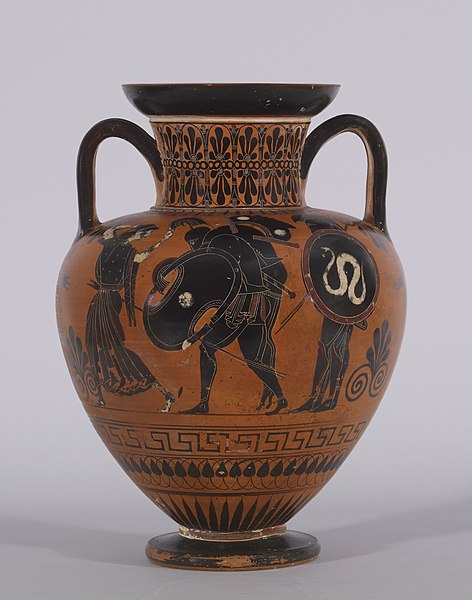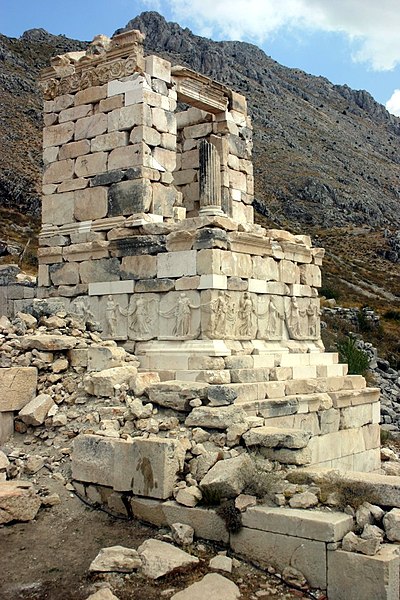Ajax or Aias is a Greek mythological hero, the son of King Telamon and Periboea, and the half-brother of Teucer. He plays an important role in the Trojan War, and is portrayed as a towering figure and a warrior of great courage in Homer's Iliad and in the Epic Cycle, a series of epic poems about the Trojan War, being second only to Achilles among Greek heroes of the war. He is also referred to as "Telamonian Ajax", "Greater Ajax", or "Ajax the Great", which distinguishes him from Ajax, son of Oileus, also known as Ajax the Lesser.
A black-figure amphora with Ajax carrying the dead Achilles. Walters Art Museum, Baltimore.
The Belvedere Torso, a marble sculpture carved in the first century BC depicting Ajax.
A copy of the 4th century BC fresco from the François Tomb, showing the sacrifice of Trojan slaves. Ajax the Great is the second from the right
The Argument between Ajax and Odysseus over Achilles' armour, by Agostino Masucci
Hero cults were one of the most distinctive features of ancient Greek religion. In Homeric Greek, "hero" refers to the mortal offspring of a human and a god. By the historical period, however, the word came to mean specifically a dead man, venerated and propitiated at his tomb or at a designated shrine, because his fame during life or his unusual manner of death gave him power to support and protect the living. A hero was more than human but less than a god, and various kinds of minor supernatural figures came to be assimilated to the class of heroes; the distinction between a hero and a god was less than certain, especially in the case of Heracles, the most prominent, but atypical hero.
Ruins of a hero-shrine or heroon at Sagalassos, Turkey
Cult of Oedipus on a Lucanian amphora, ca. 380–70 BC (Louvre, CA 308)
Offerings to a deified hero and another deity, depicted on a Greek marble relief ca. 300 BC







